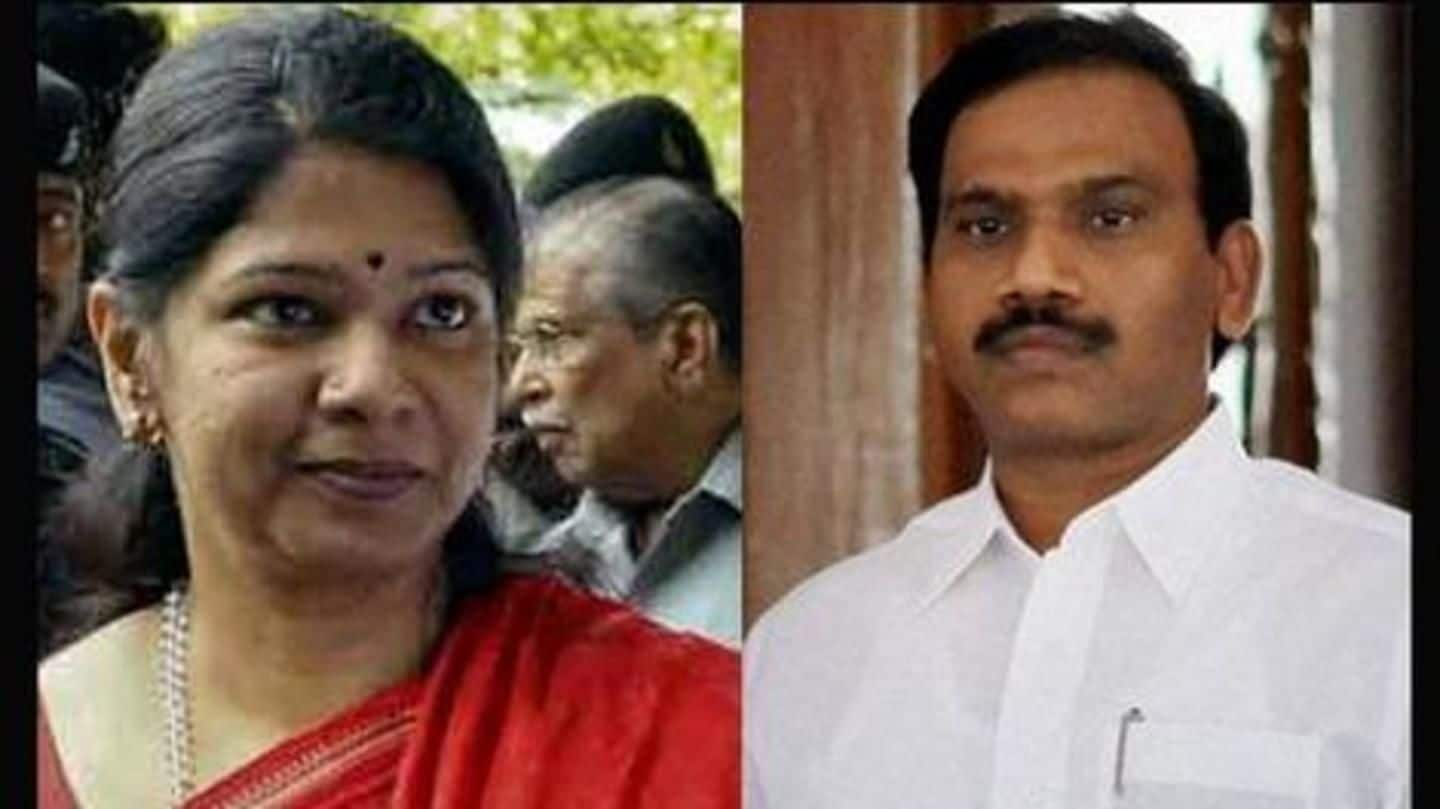
2G scam: CBI challenges acquittal of A Raja, Kanimozhi, others
What's the story
Nearly three months after former Telecom Minister A Raja, DMK MP Kanimozhi and others were acquitted in the 2G scam case, the CBI has challenged the court's decision. While relieving them in December, Judge OP Saini had noted that the prosecution had "miserably failed" to prove the charges against them. The scam allegedly caused a loss of Rs. 1.76L crore to the government.
Scam
About the massive 2G scam in brief
In 2007, when Raja was telecom minister, the Department of Telecom (DoT) began the process of allotting 2G spectrum to telcos. Licenses were to be issued on first-come-first-serve basis. 575 applications were received. But Raja allegedly subverted the government's conditions: deadlines were changed and prices manipulated. In the meantime, the infamous Radia tapes emerged, which indicated Raja had gotten the telecom portfolio after lobbying.
Information
Telcos were in on it for profits
Further, companies like Shahid Balwa's Swan Telecom and Sanjay Chandra's Unitech were given licenses despite not having any experience in running telecom businesses. They later sold their stakes at much higher rates to Etisalat and Telenor, respectively.
Accused
The probe revealed alleged involvement of top politicians
After NGO Telecom Watchdog complained about irregularities, the CBI was directed to investigate the matter. It filed an FIR against "unknown persons" in DoT. After probe, Raja and Balwa were jailed in February'11. M Karunanidhi's daughter Kanimozhi was named in the second chargesheet. It was alleged that Balwa invested Rs. 200cr in Kaliagnar TV, owned by Kanimozhi, as kickback for obtaining the spectrum license.
Timeline
A timeline of the hearing in the case
In November 2011, the trial in the case began, but many accused in the case were let out on bail. In 2012, SC canceled 122 licenses granted during Raja's tenure and directed fresh auctioning within 4 months. In 2014, the special court framed the charges; in April 2017, the court concluded arguments. Charges framed against the accused include conspiracy, cheating etc.
Acquittal
Why were all the accused acquitted?
In December'17, the Patiala House Court acquitted all accused. Judge Saini said in his one-sentence-long verdict, "The prosecution has miserably failed to prove its case." He noted it had failed to provide a "single appointment chart/visitors' register" that recorded meetings of the alleged co-conspirators, instead relying on oral testimonies. Moreover, there was no evidence that the DoT itself was strictly following license-granting policies.